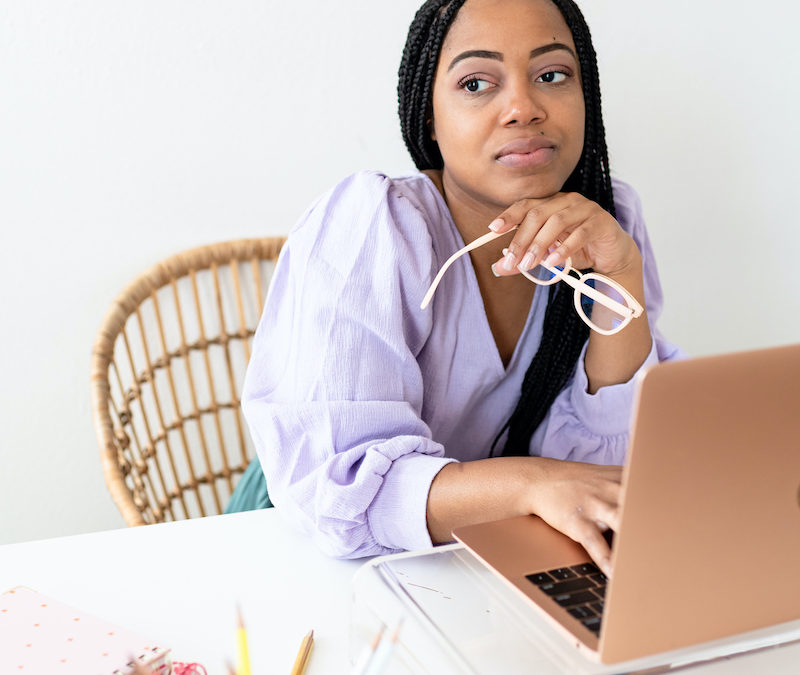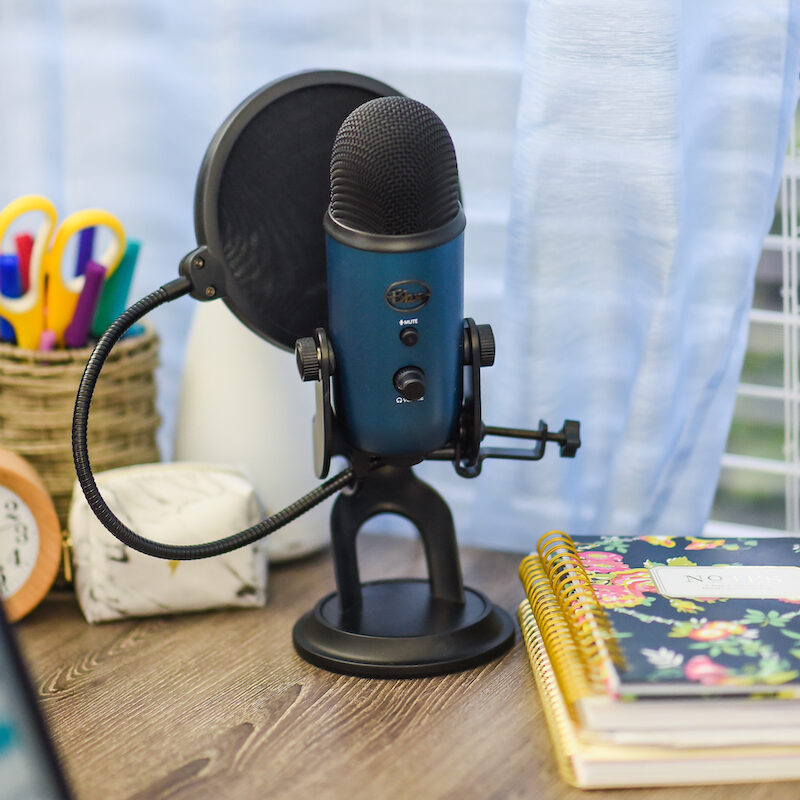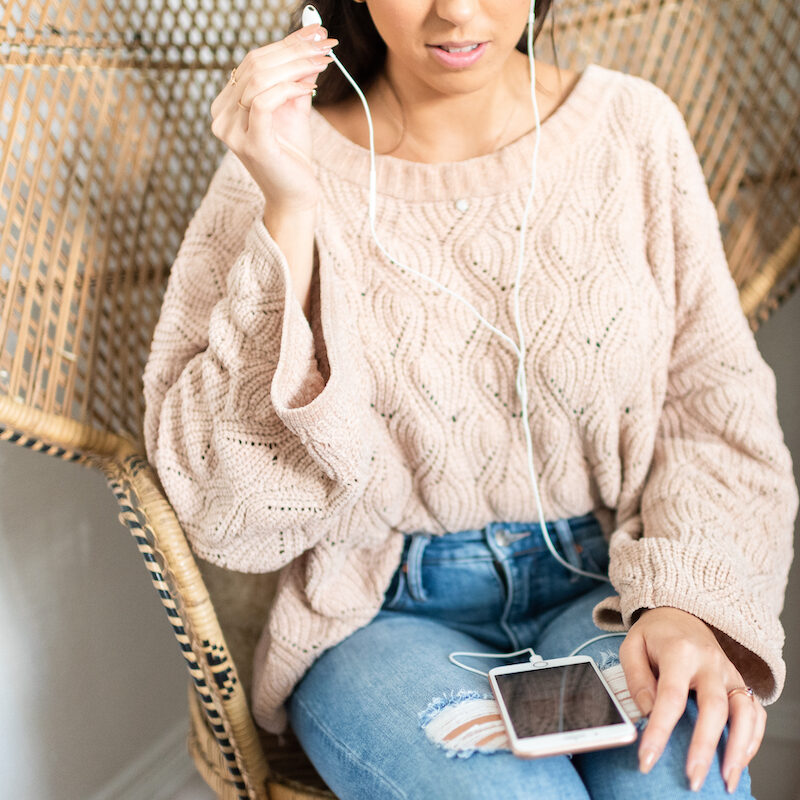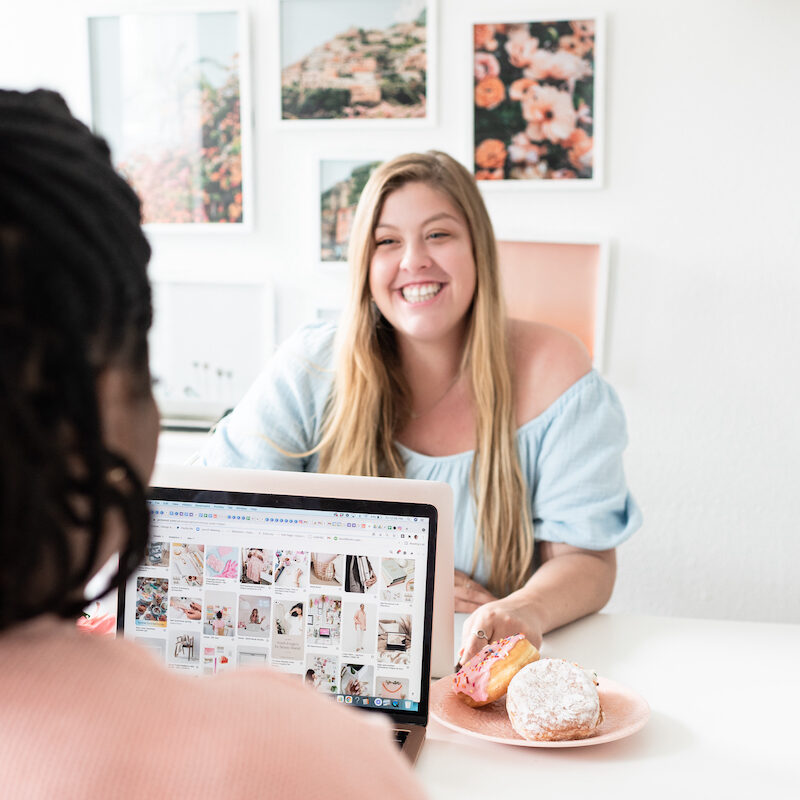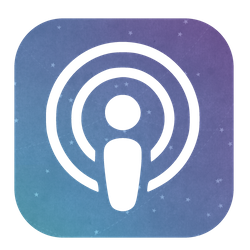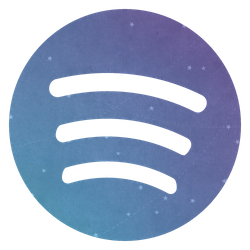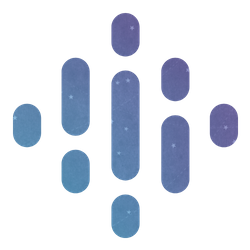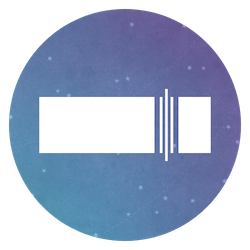episode 10
The Value of Vulnerability as a Web Designer
Putting yourself out there and being vulnerable can be scary, but it is ultimately the gateway to finding amazing opportunities and clients.
Today Sam & Karyn discuss the value of vulnerability as a web designer and how to boldly move forward in your business and own what you do.
Episode 10: The Value of Vulnerability as a Web Designer
Show Notes:
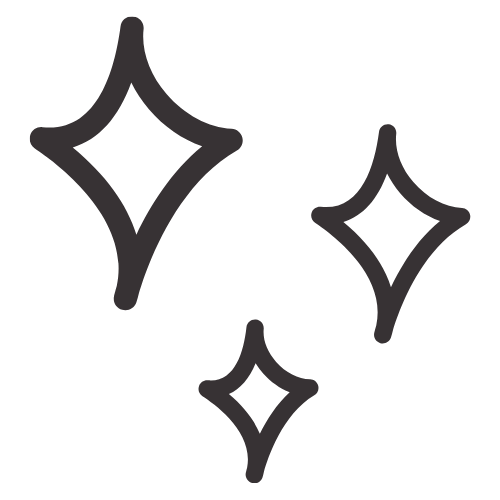
Getting over the fear of taking your business public by taking ownership of what you do and allowing it to become real.

Where vulnerability might show up for you in your business and how to tackle it head on.

Moving past the fear of someone saying no so you can visualize someone saying yes.

Accepting that feedback is part of the design process and it can make you a better web designer and business owner.
Episode Transcript:
Karyn Paige, Sam Munoz
Sam Munoz 00:00
being bold and being vulnerable and sharing your work. It’s one of those things where it’s like practice takes away the fear and the pressure. So sharing about what your work can be scary, but also very fruitful. Because again, people will see what you do, they’ll see your work, it’s a great way to show off that you are doing amazing work and it could lead to potential opportunities. So if you knew that by sharing about what you do, and who you serve, and your past work, if you knew that sharing that boldly and like walking into that vulnerability and being okay with it would book you clients would you do it can do it afraid you can do it not fully confident, but embracing the vulnerability and doing it anyway. Welcome to making website magic where we empower women to step boldly into their web design businesses follow their intuition and claim the success they’re worthy of. I’m Sam Munoz.
Karyn Paige 00:55
And I’m Karyn page, where the tech wizards behind Sam Munoz consulting on the making website Magic School of Business. were two women here to talk about what it actually takes to run a web design business that’s aligned with your vision.
Sam Munoz 01:07
Spoiler alert, it probably isn’t what you think it is ready to hear about everything from refining your business vision, networking with intention and creating a magical client experience. Let’s do it. Why hello there, Karyn. Hey, Sam, are you ready to talk about the value of vulnerability as a web designer? Because that is what we are talking about today?
Karyn Paige 01:35
Yeah, you know, I’m ready. Let’s get into it. I am here for all the vulnerability, all the fields, all the thoughts, all the things, you know, but first, should we read a review?
Sam Munoz 01:45
Yes, of course. Okay.
Karyn Paige 01:47
We have been getting some amazing reviews y’all. Like, it’s heartwarming, and it’s resonating for us with y’all. So thank you so much. This review is called empowering women in tech. And it says, I’m so excited to continue to follow this journey of learning how to make a sustainable business as a woman of color. Through this podcast, I cannot wait to explore web design with these two charismatic, strong, empowered women whose platform believes in needing to see it to be it noticing the lack of representation of women, especially women of color in this industry. Overall, this podcast aims to motivate more women to find their voice and vision for themselves beyond the glass ceiling imposed upon them, which I think is more necessary than ever in these unprecedented times. Wow. Wow. Thank you. Yeah, that’s there does a review of this podcast. Thank you so much.
Sam Munoz 02:42
So appreciate that. And you know, what I feel like that review perfectly ties into this conversation for today, because we are talking about vulnerability. And I mean, our womanhood, I believe is also inherently tied into our desire need and the experiences that we have a run vulnerability in web design. And so I hope that this is going to be a really interesting Actually, I know, it’s going to be a really interesting and informative conversation, because we are peeling back those feelings and those layers to share some of our own vulnerabilities that I know is going to resonate with the women that are listening to this podcast, let’s start talking about it
Karyn Paige 03:22
on this idea of like vulnerability and women and like kind of using that subtext of like, this is who we are in business, it reminds me of an observation someone made once where they said, what’s true in business is also true in life, you know, and as women, there are lots of instances in our lives where we feel vulnerable, because of, you know, the things that we’re going to get into. And so it’s really thinking about that as like the subtext of us bringing those vulnerabilities into our businesses
Sam Munoz 03:49
totally. And honestly, like, the way that we’re framing this conversation is very much like we want to talk about different areas where vulnerability comes up in web design. So whether it be publicly or like within projects, and talk about why, although these are hard experiences that we have, and they keep us raw and open, which is the whole idea of being vulnerable, right? Like you’re exposing yourself to potential negative feelings and negative experiences, but there’s a value in it. It’s actually such a huge value add to have an experience vulnerability in your business. So let’s talk about those different areas and why the experiences that we might have, but then also kind of flip the script and look at it from a new perspective and how that vulnerability is actually like our superpower in those spaces. So let’s start with the public.
Karyn Paige 04:38
The first thing that comes to mind is just the general idea of putting yourself out there, right and all that that implies being public, with your business, being public, with your designs, being public with your work, things like that. Like when I first started my web design business, I was so resistant to sharing that on my personal Facebook profile I in no way I wanted to just create the status update of like, Hey, everybody that I know, I’m starting this new web design business. And that’s that, like, I just didn’t know where to go with that thing for it for me was it was a total 180 pivot, like it was kind of coming out of nowhere that I decided to do this thing. And so everybody that I knew on Facebook kind of knew me in this certain industry certain capacity, I had this like whole identity and persona of these relationships that I built. And so to share that on Facebook felt very vulnerable, because it was like, well, who do you think you are doing that we don’t know you for that we know you for all this other stuff. So like, again, going back to the idea of like, putting yourself out there in the public facing like, maybe exposing yourself to negative feedback or reactions, it felt very uncomfortable to do that. And I ended up doing it. And I got, like, some positive feedback. You know, thanks to the Facebook algorithm, I’m sure only like 5% of the people that I was connected to saw it anyway. So like, whatever.
Sam Munoz 05:55
And honestly, like, I feel like that’s the most natural response anyway to when someone says like, I do this, like someone says, what do you do in the news share with what you do? Most likely, you’re not going to have an experience where someone is like, Oh, really, that’s dumb, or like, you know, give you that negative feedback. Now, there are some holes out there, like there are some people out there who will not be so kind, but like, I still feel that way, too. Just this weekend, someone asked me what I do. And I was like, I want a web development company. And I could feel myself kind of like shriveling up into me, which after the fact they were like, Oh my gosh, that’s so cool. And then, you know, they asked questions and like very interested in what I did. So it was like, why did I feel so shy about that? so embarrassed, but it is because it is vulnerable? Like you could still potentially face criticism or questioning or, you know, I’ve got an engineering degree. So I didn’t want that feeling of like, why do you do this? Like, this is not even like you said, it’s out of it feels like out of left field. But I mean, if we never tell anybody, how is anybody gonna know what we do?
Karyn Paige 06:51
Yeah. And like, to your point about like, it’s more likely that somebody is going to respond with like, Oh, that’s so cool. Or tell me more that’s really interesting. Like, what is that? Like, then it is that someone’s going to respond with?
07:03
Who do you think you are, you don’t have any business doing anything like that, like that is not where he’s supposed to be like,
Sam Munoz 07:08
and to be fair, those people’s opinions literally do not matter.
Karyn Paige 07:12
And to be fair, if you get a response like that, maybe that’s a sign that that that you shouldn’t be, we not have that person in your life.
Sam Munoz 07:18
That’s what I’m saying. Like, they’re probably projecting. Yeah. So when we boldly declare it, it is vulnerable. But you know what that is what helps us find clients and like you posting that on your Facebook, now people know what you do know. And someone that you know, is randomly talking about, like, Oh, I started a business, it always comes back to this idea that like web design, and development is a space that there is an abundance of opportunities, like everybody knows somebody that’s like starting a business or has a business and needs a website. Like, my grandma knows people that need websites, like it’s just a thing. And so if my family, my friends, all of these people I’m connected with in my like, main little network, don’t know that I do this, how am I going to expect people to find me? No one is just gonna walk through my door and be like, hey, do you do websites? like no one’s just gonna, like, come up to you and do that. So that’s why vulnerability is a superpower because it is vulnerable to do it. But you know what, it is fruitful, when you boldly declare it in a public way that you do what you do.
Karyn Paige 08:15
Yeah, it’s like you’re doing it anyway. You have the business, you’re working with clients, you’re launching stuff. So
Sam Munoz 08:21
why don’t you talk about it? Right? I know that vulnerability comes up for me also, with like, even just sharing projects that we’ve launched, just because like, you never know, like, someone could give you negative feedback on that, especially if you’re in like a space where people are more critical of things, you know, maybe you’re in like a Facebook group and you go to share your work. And that’s not a positive environment. But again, is that you or is that a reflection on the community that you’re in. So being bold and being vulnerable and sharing your work, it’s one of those things where it’s like practice takes away the fear and the pressure so sharing about what your work can be scary, but also very fruitful, because again, people will see what you do, they’ll see your work, it’s a great way to show off that you are doing amazing work and it could lead to potential opportunities. So if you knew that by sharing about what you do, and who you serve, and your password if you knew that sharing that boldly and like walking into that vulnerability and being okay with it would book you clients would you do it can do it afraid you can do it not fully confident but embracing the vulnerability and doing it anyway.
Karyn Paige 09:25
Yeah, and there’s this whole piece of like when you just like declare it when you make a definitive statement like I do this day, there’s a lot of power in that and it starts to become real right like when you’re committed to this idea like saying that you have a business and not downplaying it like not saying oh yeah, I kind of like do this thing like whatever but it’s like you are firm and steadfast and like rooted in your body like I do this thing or I just watched a new website, look at it on my Instagram. You know, it reminds me of this thing. I saw it like in a Barbra Streisand an interview. It really stuck with me. She said at the moment of commitment. The universe will work to assist you. Like when you commit, I do this, the wheels start turning, and it’s like, okay, she does this, let’s help her continue to do it right. But when you like, Don’t put yourself out there, name it claim it all of these things, then it’s like, well, the universe is just gonna like, she’s not really sure about it. So we’re gonna move on to somebody who is sure about it and give her all the things and present opportunities to her,
Sam Munoz 10:26
that makes me think of like picking your ideal client or your dream client and like declaring that, like, I’m a web designer for coffee shops, and saying that even if you’re afraid, or maybe you’ve just had one client, or maybe you’ve had no clients in that space, but you’re like, boldly declaring that so that you can attract those types of people, there is hesitancy and fear and vulnerability around like deciding that you’re now doing work for like a specific type of person. And you might feel like Who am I but like, why not you. And that’s where like that vulnerability piece comes in. That’s where you walk in, and you say, I’m rooted in what I’m doing. And I’m declaring it, and I’m owning this space, I’m deciding that this is what I do. I love that, that idea that like the universe makes way for that and like brings the flow and, and the abundance amazing, totally believable. And I mean, I think that you could see it happen. Like, again, like, no one’s just gonna walk through the door and just like come pay you for your work. So you have to you have to be willing to be vulnerable. And I know another part of like, online business, too, is like, and I guess you know, this actually kind of relates to in person things as well, when you’re like going and meeting someone in person is like, there’s a vulnerability and like, existing as a person, and like being on a camera or talking to someone face to face, and like worrying about their judgement of you and your aesthetic. Yep, right, your looks, maybe I’m too young. I’m too old. I’m too you know, my hair is different. And as women, we’ve talked about this in, you know, in the fear of discovery calls episode like as women, I feel like it’s even heightened, because there is so much like pre judgment that happens to women. And it’s just a fact. And it’s vulnerable to say like, this is what I do and show up and be an expert, and things like that, too. So that’s like another level to it.
Karyn Paige 12:06
Yeah. And beyond the vulnerability of like just putting yourself out there, which is, so it’s like an umbrella term. It’s very all encompassing, like, there’s a lot of areas within our businesses that also can bring up vulnerability for us. Right. And so it doesn’t just end with though Okay, well, now I’ve claimed it, I’ve made the statement that I do this, the vulnerability ends with that. It’s like there’s, there’s gonna be some more stuff, right. But it comes up a lot in like marketing sales calls, stuff like that, you know, we’re all about discovery calls, right? So it comes up there, you know, am I going to say the right thing? What if I don’t have the answers? What if they asked me a question that I don’t know? What if they want me to do something, and I don’t know how to do it. Like, there’s a lot of vulnerability there.
Sam Munoz 12:54
That’s such a big one. I know, we talked about that before on the podcast. But like, what’s cool about being willing to be vulnerable, and show up on a discovery call? And maybe even say that you don’t know the answer, I would actually argue that that’s like, the most vulnerable piece is saying that you don’t know. Because then you are opening yourself up to potential judgment from that client. But to me, the best types of people to work with are people that not only understand that you don’t know everything, but appreciate the honesty, appreciate the transparency, and you saying, you know, I don’t know that, but I’m happy to look it up for you. And like adaptability, which I want to do an entire podcast on this, this idea of adaptability as web designers, because like adaptability is a damn skill. And so if you are on that call, and you’re like, I don’t know how to do this, but I’m gonna figure it out. We’re gonna work on it together. Like, I will be your adaptable queen. And I will figure out any problem that you throw at me just be ready to be to send over a proposal right away when you say that.
Karyn Paige 13:47
Yeah. So again, it’s like, I think that vulnerability comes from that fear of like, something negative happening, right, like a negative response and legs and negative feeling or whatever. Like, if they say no, the association that it’s like a personal attack against you as a human, like all of that stuff. And just centering in that again, it’s like, it takes away from the idea of like, well, what if they What if they say yes, what if it goes well, like so protecting yourself from vulnerability, because something might go wrong, also prevents you from being available? If something goes right.
Sam Munoz 14:17
Oh, Karyn, that is quotable? Yes, exactly. Because if you don’t allow yourself to be vulnerable, you are blocking potential opportunities. And that’s why there’s a value in vulnerability. So making the ask you can’t even have the opportunity to have them say yes, unless you make that ask, but the act of asking someone if they want to work with you, and if they want to move forward with you is a scary, intense feeling like it is and I think the more we can talk about these things and remind everyone that like the feelings that you’re feeling are normal and feelings are happening to us anyway. Whether we want them or not. And vulnerability is a part of that. And when you’re vulnerable, you are like accepting and opening yourself up to potential hard feelings, but You’re also opening yourself up to really, really good positive outcomes. And that’s like, that’s the risk worth taking.
Karyn Paige 15:07
That makes me think of like, how do I personally is as an individual, how do we actually handle those emotions? Like maybe the reason why we don’t want to be vulnerable, because leak can lead to something negative or scary, or make us feel bad part of it is also like our capacity to be able to deal with the negativity.
Sam Munoz 15:26
Oh, yeah, in fact, it makes me think of therapy, because I’m always telling my therapist, like, I have anxiety and like, I struggle with that a lot. And I’m always telling her that like, She’s like, you know, sometimes, like, it’s gonna come up, and then you’re gonna have to, like, experience that feeling and like, move through it. And I’m like, but I don’t want to I want to run away from all these feelings. And like, because you’re acting, you’re making the choice to potentially feel bad feelings. And like, who wants to feel that?
Karyn Paige 15:54
Yeah, that’s what I’m, that’s what I’m getting at. You’re feeling wants to feel the bad feelings? Yeah. But it’s like, Okay. The other thing though, is if you never put yourself in a situation where you might feel the bad feelings, it’s like you’re against, like you’re blocking these opportunities, and also blocking opportunities for growth, right. And like, that makes me think of when we’re in the project and all of the vulnerability that we feel around like feedback, going with the back and forth where our clients like presenting design, markups, and having a client sit with them, and then tell us what they think what they feel if they like it, if they don’t, all of those things. There’s a lot of vulnerability there. But it’s also not preventable. Like it’s part of the project process. And so how do you even imagine to have a web design project where you don’t get feedback, and you don’t feel something, feel some type of way about it, like the feedback is part of the process. So avoiding hearing the feedback is not part of the process.
Sam Munoz 16:48
That was like one of the motivations for this podcast episode in the first place. I don’t know if you remember when like, we were writing this one down, Karyn, we were talking about like feedback. And then we were talking about how the project is like a microcosm of like the overall vulnerabilities that you’re going to experience in business. And you can’t even get to the point where you’re like dealing with the feedback part, if you’re never opening yourself up to these other things that you’re going to have to go through to get the project in the first place. But like, it’s inherently a part of the entire process. It’s in the public side in the marketing and the visibility, it’s in like making the sale and it’s in the doing of the project. And what’s really great is that you could actually work those like vulnerability muscles in the public and like discovery called phases, so that you can be more prepared and ready to move through it in the project. Because if you don’t ever get feedback on designs, like imagine a world where you like, just sent off a design to a client, and like never allowed them to tell you how they would like changes, or, you know, allow them to assess your work at all, like you’re blocking yourself from learning and from providing better results to your clients. And you’re letting your ego stop you from excelling in your craft.
Karyn Paige 17:57
Yes. And what’s the alternative that you present a markup or a design that that they don’t like? And they don’t tell you that they don’t like it? And then they pay for something that they don’t like, and they don’t want?
Sam Munoz 18:07
No, right? Like, is that integrity? Also?
Karyn Paige 18:09
Yeah, yeah. But I wouldn’t pay for something that I didn’t want. I’m just like, no, please go back and make this what I want. And here’s how you could do it. That’s a personal, that’s what’s gonna take, if you go to a restaurant, you order something and your order is wrong. You told the server, my order is wrong, please go back and fix it. It’s not like a judgment against the server or the chef. It’s just like, this isn’t what I’d like, here’s some feedback, please make it what I like, thank you.
Sam Munoz 18:35
Yeah, I will tell you that, like, I still feel that vulnerability in the project. And that’s why it’s so helpful to practice it outside of the project practice like being vulnerable, moving through it and accepting like, the outcome and being okay that like, sometimes the outcome is going to be negative feedback or you know, constructive feedback, however you want to see it, but I do see it as opportunities for growth. Because this is a really, really good example. I don’t know if you ladies have ever had a project where like, even if you like love the project, it was great. Like, everything was fantastic, but then you’re like, Okay, I’m like really afraid to get a testimonial because like, I don’t want to like necessarily get feedback from them. So I’m just gonna kind of like finish the project and or run away, because it’s like, easier. It’s easier than someone telling you like, Oh, you could fix this like process or whatever, but you are lacking and losing the value of having clients tell you, you know, maybe if you sent this email earlier in the process, I would have been able to give you what you needed faster, or this mockup portion. I actually didn’t need that. Like that’s valuable feedback and feedback about your designs too. It helps you again, it helps you continuously improve and framing that way and saying like, Okay, I’m going to try to not take this personally and use it as an opportunity for growth so that I can get better so that I can serve my clients better so that I can make more money in my business and like book more projects because I am willing to be vulnerable and willing to grow you’ll burn out Rolling, we’re dying. That’s what my like life coach used to say way back in the day when I was working with her, she’d always say, if you’re not growing, you’re dying.
Karyn Paige 20:07
Again, it’s like, there are ways that we can mitigate how we feel about like feedback, right? Like, there are ways that we can actually empower ourselves to receive that feedback. And part of it is, again, like managing your expectations. And just being aware that, hey, I’m probably going to hear something, they’re going to ask me to make a change, they’re not going to like something, it’s not because it’s a reflection of me, it’s just because it’s not part of what they had in their vision. Right, if we can just acknowledge that, that helps us chip away at the vulnerability and the fear of the feedback. The other thing too, is like guidelines around feedback, like I had this great project where I was working with this woman. And when I gave her the markups, she came back to me with like, a lot of very verbose feedback. But it wasn’t a lot of changes, it was a lot of I would really prefer if maybe in this way, you could do it this way instead of that way. And like, I really like it if it looked like this, instead of like that. And so that was a lot for me to read. And I looked at the feedback, and I was just like, I’m kind of swimming here. It’s a bit much. And so what I did was I actually extracted everything that she said as bullet points. And then I realized it wasn’t that much to do. So the next time we had revisions, I asked her, I said, you know, what is really helpful for me for feedback is if you just do bullet points of the things that you need, I actually think that that was a really for her because I think she wasn’t very comfortable giving me the feedback, because you know how we do sometimes it’s like, we want to like cushion the blow. Yeah, that’s exactly what I was gonna say is like, I think she was trying to cushion the blow. But what I needed to communicate to her was like, it’s actually not a blow at all. For me, it’s just like, it’s like tasks in an Asana board, boom, boom, boom, and I love checking off tasks and doing strike throughs, that made the second time I needed to get her feedback a lot better. And it was just literally just, this is how I like to receive feedback, please feel free to send it to me like this,
Sam Munoz 22:06
how could you get to the point where you’re refining your process in that way, because everything is a process, I mean, even from before you get the client like on boarded, and in the project, like everything is a process. So a part of the process is the feedback portion of it. So you’ve refined your feedback portion to by listening and being aware of the way the feedback process was going, there’s again, like it takes being willing to try something, and to be aware of what could happen. But just going and doing it, I feel like that’s like the moral of the story, right is like stepping boldly, whether it be declaring that you do this, declaring that you do web design, or whether it be making the ask on a discovery call or saying you know what, I’ve spent a lot of time on this work. But I need the feedback. Because I know at the end of the day, this is going to produce better results for my clients. And I’m going to set my ego over here, it really wants to get involved and stop me from doing this because it might hurt to read some of this stuff. But there’s value in what’s going to happen as an outcome. So I think like embracing vulnerability, but like you said, recognizing that it’s there
Karyn Paige 23:15
and acknowledging that the vulnerability exists, acknowledging that you might feel a little stain, like it might get you, you might feel some type of way about it. But we have to process and cycle through those things to get to the other side of it, where it actually won’t sting. And it’ll be fine. And the thing about like, how empowered you are when you you know, the things that make you vulnerable, and then you’re like, Okay, well, this is how I’m going to show up to reduce the vulnerability that I feel like, I’m just going to say the thing, or I’m just going to make the ask, or I’m just going to say this is how I prefer to receive feedback. And then now you’re actually like, empowered, you’re empowering yourself and you’re building up that confidence.
Sam Munoz 23:55
I love that. And I like when we end the podcast episodes on like, okay, here’s something that you guys can go do, and like how you can take what you’ve heard and like, either apply it to action or like a place for deeper thought. And I will definitely say that like next time someone asks you what you do, and you feel this desire to like, hide, right, and I’m taking this advice myself boldly declare that you own a web design and development company, or whatever it is that you call it. Like I build websites for coffee shops. That’s what I do arion theory I’d be bold. And then like you said, Karyn, like noting that whole meditation thing of like noting that the vulnerability is there that there are potential outcomes that may feel icky, but you’re going to step into it anyway. Because you know that the other side of the outcome, the other The alternative is really, really fantastic. And sometimes going through like the nervousness and the potential negative responses could lead to something absolutely amazing. And that’s why conversion rates are so important, right? Because then you can easily show yourself with black and white numbers like sometimes 50% of the time, I might get another So I’m just going to go into this knowing that this might be one of the two. And that’s that. Yes, he has, when in doubt, take it back to the numbers. Exactly. Well, thanks so much for having this vulnerable conversation, Karyn. And for those of you listening, like, I hope that if we shared something where you were like, yes, this resonated with me, I’ve experienced that. I hope this has you feeling more seen and heard and also understanding that like, it’s okay to still move through it and do it anyway, doing it nervous and afraid. And if
Karyn Paige 25:27
it resonated with you, like tag us on Instagram, let us know take a screenshot of this episode and then tag us and in that they should say who they
Sam Munoz 25:35
are and what they do, right? Yes, say that your web designer boldly declare it
A Season of New Beginnings
Today Sam & Karyn make the bittersweet announcement to end the podcast as they step into a new season of life and business. They share what is to come for them, how you can stay connected to the Making Website Community and encourage you to be open to new opportunities, too.
Season 02 in Review
Today Sam & Karyn look back on season 02 of the podcast, celebrating successes in the mentorship, launching our free community, the future of the podcast and Making Website Magic at large.
People-Pleasing as a Web Designer & Developer
Today Sam & Karyn discuss people-pleasing, understanding that your business has needs and how to honor them in your client relationships.

